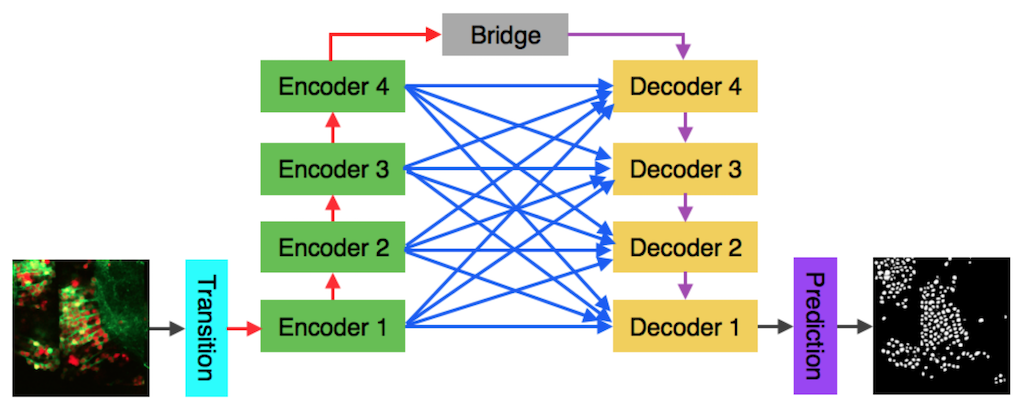The Neuron Segmentation Using Deep Complete Bipartite Networks

In this project, we consider the problem of automatically segmenting neuronal cells in dual-color confocal microscopy images. This problem is a key task in various quantitative analysis applications in neuroscience, such as tracing cell genesis in Danio rerio (zebrafish) brains. Deep learning, especially using fully convolutional networks (FCN), has profoundly changed segmentation research in biomedical imaging. We face two major challenges in this problem. First, neuronal cells may form dense clusters, making it difficult to correctly identify all individual cells (even to human experts). Consequently, segmentation results of the known FCN-type models are not accurate enough. Second, pixel-wise ground truth is difficult to obtain. Only a limited amount of approximate instance-wise annotation can be collected, which makes the training of FCN models quite cumbersome. We propose a new FCN-type deep learning model, called deep complete bipartite networks (CB-Net), and a new scheme for leveraging approximate instance-wise annotation to train our pixel-wise prediction model. Evaluated using seven real datasets, our proposed new CB-Net model outperforms the state-of-the-art FCN models and produces neuron segmentation results of remarkable quality.
Neuron Segmentation Using Deep Complete Bipartite Networks, Jianxu Chen, Sreya Banerjee, Abhinav Grama, Walter J. Scheirer, Danny Z. Chen, Proceedings of the International Conference on Medical Image Computing and Computer Assisted Intervention (MICCAI), September 2017: [arxiv] [pdf]
